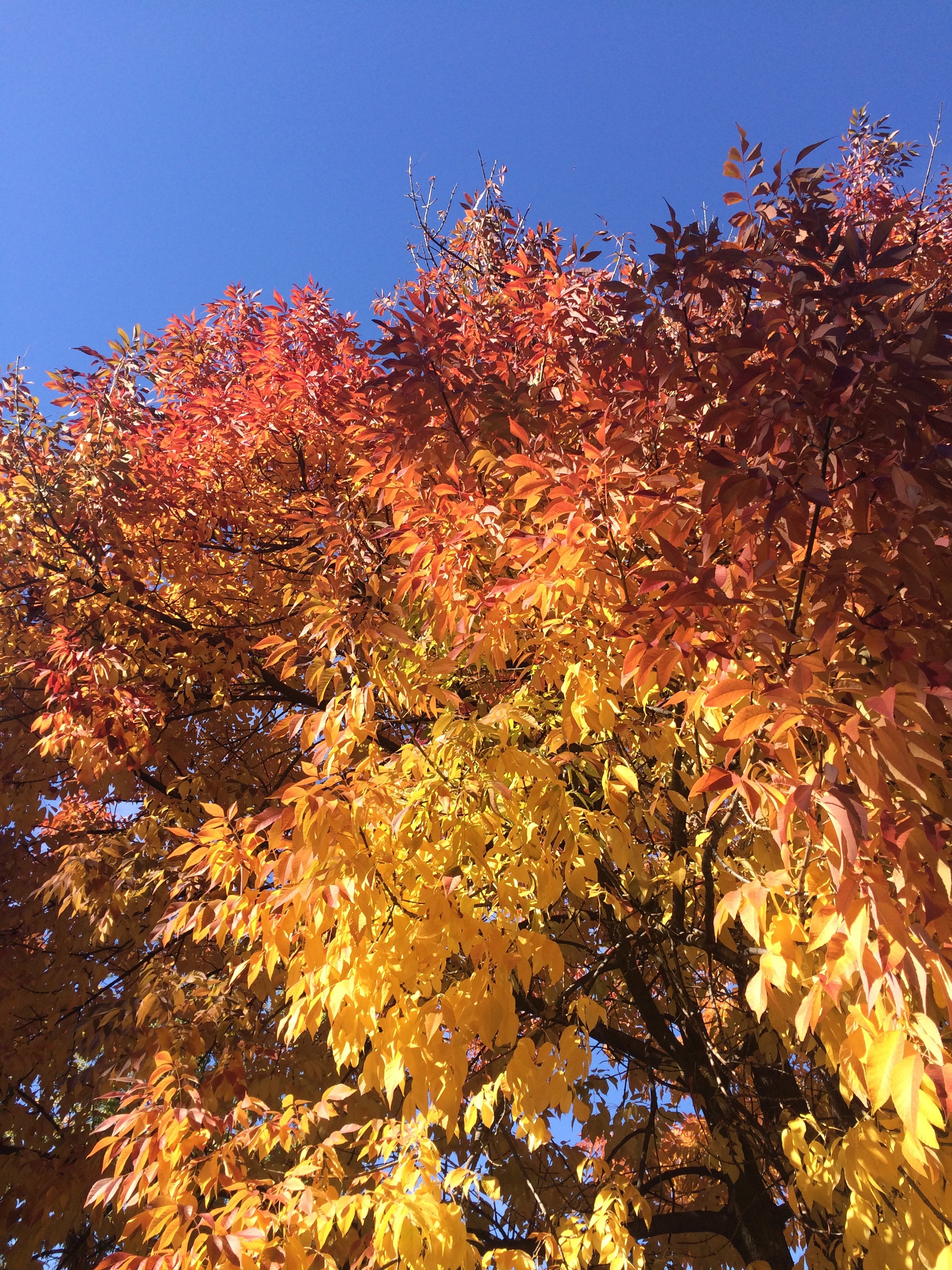Trees define a place, more so than is commonly recognized. What are the Rockies without evergreen forests and stands of aspen? What is New England sans its foliage? Deprived of its trees, there is no rain forest. Even the lack of trees sets a place apart: tundra, desert, steppe, barrens.
In the trunks of trees swells the history of a place, not only in the rings of time but in the seeds of regeneration branching out across the centuries. No tree stands alone, nor any man, but in its genetics carries a memory of days now reduced to dust. Its roots suck on the bones of all our ancestors.
I would plant a red maple sapling cut from the forests of Walden Woods in Massachusetts. I would place it beside a pond and watch for the surveyor, Henry David Thoreau, to appear. He will be staking markers every forty rods across the wilderness and wondering how this dry knowledge of metes and bounds will affect his imagination and fancy.
"What a history this Concord wilderness, which I affect so much, may have had!" he exclaims.
"How many old deeds describe it -- some particular wild spot -- how it passed from Cole to Robinson, and Robinson to Jones, and Jones finally to Smith, in course of years! Some have cut it over three times during their lives, and some burned it and sowed it with rye, and built walls and made a pasture of it, perchance. All have renewed the bounds and reblazed the trees many times."
Now I would take a cutting of its history and transplant it far across the continent, well beyond the bounds of ancestral Walden. In its growth and maturity I seek connections with that past.
I would also plant a shortleaf pine from seed of the one that stands on Kill Devil Hill in North Carolina overlooking the meadow where Orville and Wilbur Wright flew their lighter than air machine. I will select high ground where the westerlies are strong and steady, inviting upward mobility, and through the pine's blue-green needles I expect to hear the rustling of the winds of change. Is there any better watch for our age than one whose forbear witnessed first flight?
And I would also plant a sycamore descended from the three on Baltimore Street that stood in the line of battle when Gettysburg was fought. Its hardwood will take firm root between my property and my neighbor's, a constant reminder of the horrors of conflict and the importance of common ground.
These descendants of memorable and remembering trees, and others like them, can be purchased through American Heritage Trees in Lebanon, Tennessee. There are white oaks from the Kentucky birthplace of Abraham Lincoln and a black walnut from the Civil War battleground at Antietam. From Edgar Allen Poe's home in Philadelphia cuttings have been taken from a hackberry, and from George Washington's home at Mount Vernon seeds are gathered from a maple that was spared his ax.
In planting witnesses to the past we stake our claim on the future. What grows with a memory of yesteryear will recognize fresh starts. By sowing history in a place we introduce not only new leaves and sprouts, but also new meanings.
